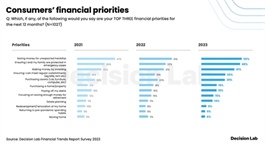Vietnamese banks target international safety standards under Basel III
Vietnamese banks target international safety standards under Basel III
The third Basel Accord is the latest target of Vietnamese banks after successfully integrating international banking safety standards Basel II.

According to banking expert Nguyen Tri Hieu, besides helping banks improve their credit ratings and enhance their competitiveness in the international market, Basel III has stricter regulations to minimise risks in the event of a crisis.
In addition to raising the capital proportion and quality, Basel III improves the ability to contain risks that would otherwise drain capital requirements to cope with and prevent. The market will feel pressure in the next 12 months as it requires banks to maintain a sufficient amount of assets that can be converted to cash in 30 days in difficult times.
Some domestic banks have applied Basel III early in order to improve liquidity and resilience against crisis' though they have faced difficulties and obstacles in the implementation.
TPBank has recently launched a Basel III capital calculation project based on basic and advanced internal ratings (FIRB & AIRB). In November 2021, TPBank announced it had completed all the requirements of Basel III and IFRS 9 which were put into full effect at that time. By 2022, the bank completed the implementation of Basel III and Basel III Reforms under the standards approach (SA).
Together with TPBank, LPBank and ACB also announced the completion of the Basel III Risk Management Standard.
Some other banks, such as Nam A Bank and SeABank, are also implementing and applying Basel III risk management requirements.
Well aware of the importance of Basel III in the future, Sacombank has recently also launched a project on implementing the accord and improving the capacity of the risk management system.
Pham Van Phong, vice chairman of Sacombank's board of directors, said the Basel implementation is one of the key factors to help the bank complete its restructuring project as it optimises all business activities while ensuring safe and effective operations.
Hieu highly appreciated the banks' proactive approach to Basel III in the current difficult context, saying this was a very good signal because Vietnamese banks had only started with Basel II in the past few years but had completed much of the requirements, while some major banks worldwide were facing implosions and the risks for banks in general increased. Basel III would create a solid risk management framework to help increase safety and business activities develop sustainably.
Besides bringing advantages, Hieu said the implementation and application of Basel III also posed challenges for banks.
To successfully implement Basel III, banks need an abundant amount of capital and have to accept a larger provision buffer to reduce operational risks. Large banks with strong financial strength are likely to find this easy, but for small banks, this is a lot of pressure, according to Hieu.
According to experts, besides the capital challenge, to successfully apply the pillars of Basel III, Viet Nam’s banking system needs to have accurate, reliable and updated data that the country is still lacking.
In addition, one of the important factors in successfully applying Basel III is the training of staff to equip them with general knowledge and necessary skills, which is also a major obstacle for banks.



















